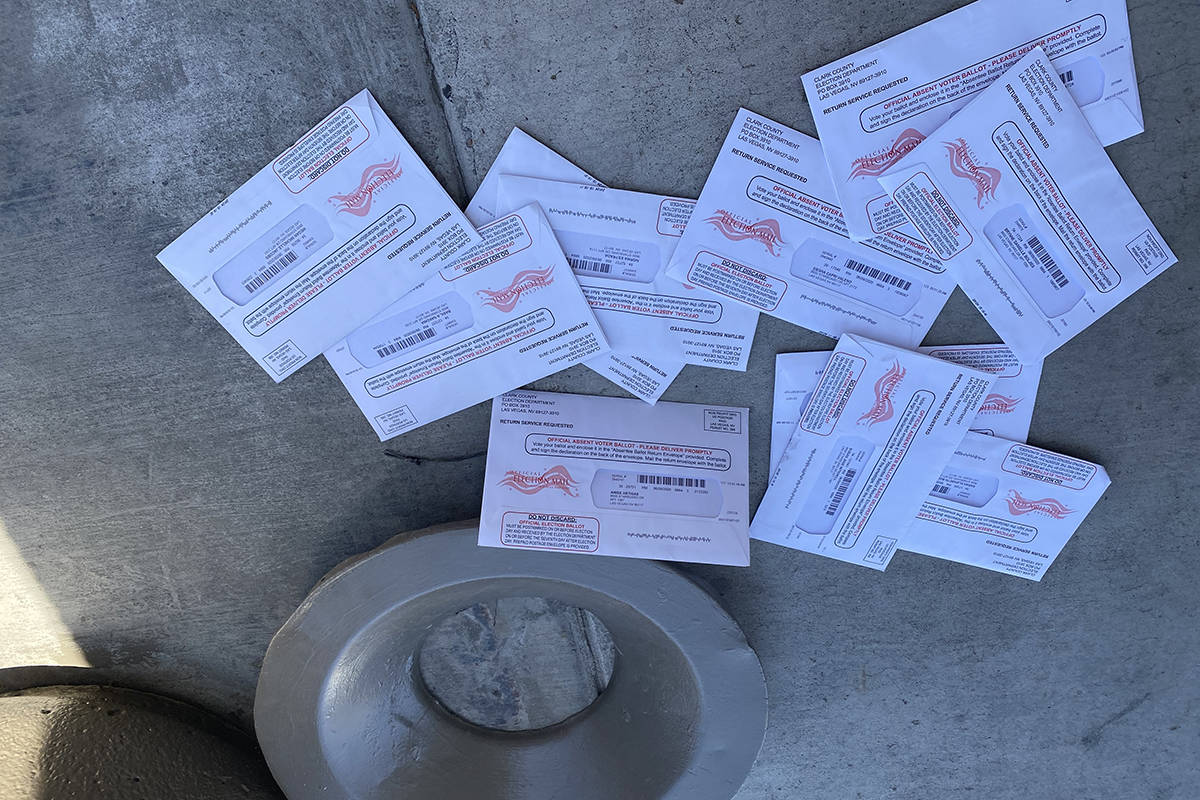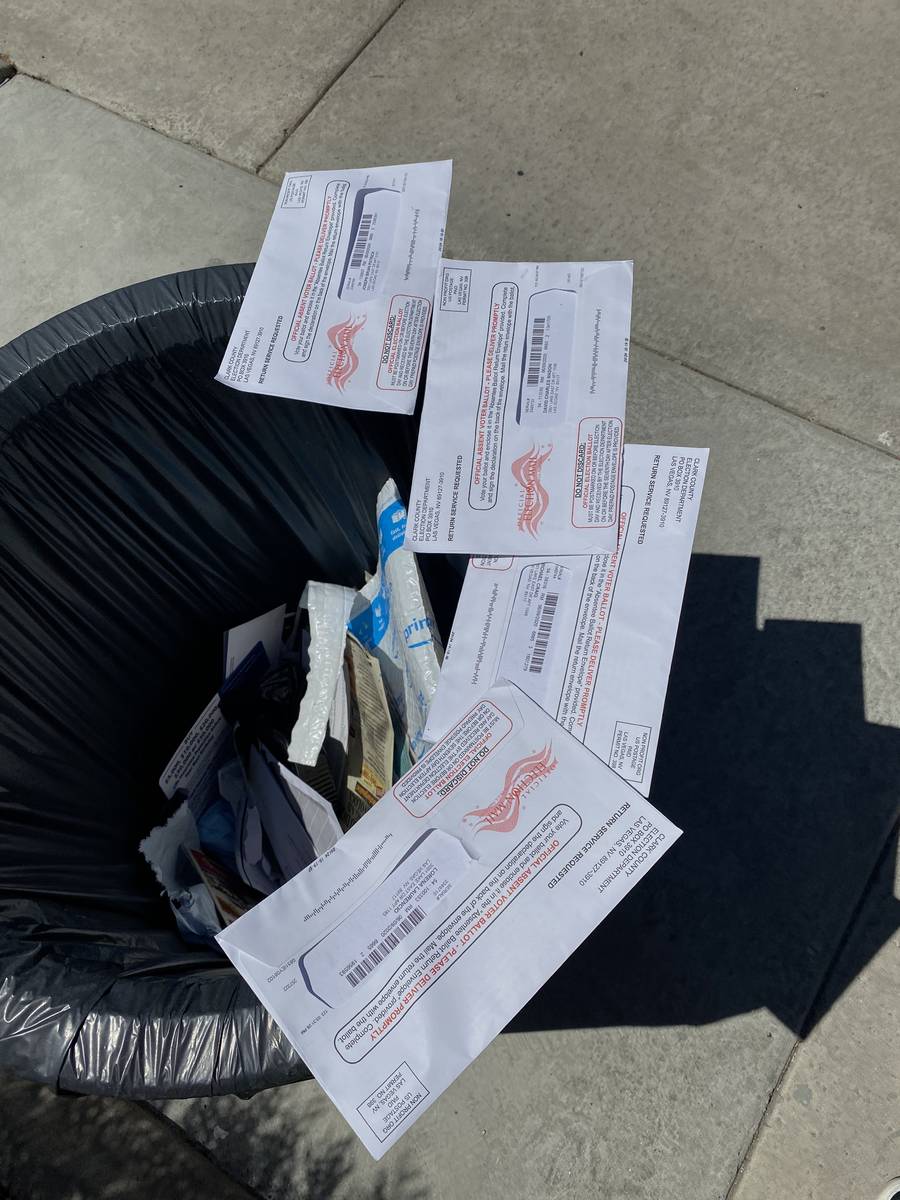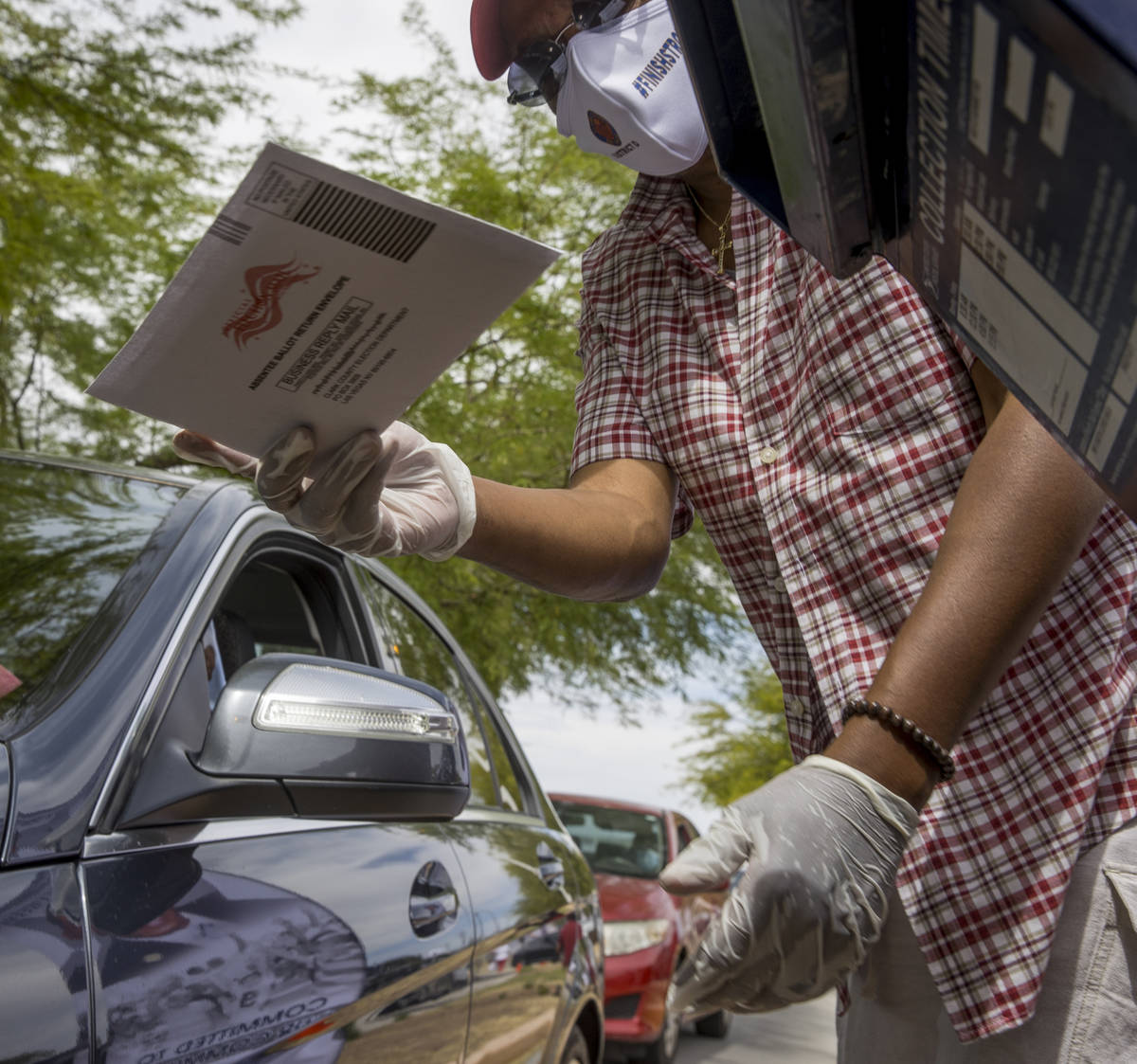VICTOR JOECKS: How vote-by-mail increases the chances of election fraud
President Donald Trump is right. What’s happening in Nevada is an invitation to fraud.
“State of Nevada ‘thinks’ that they can send out illegal vote by mail ballots, creating a great Voter Fraud scenario for the State and the U.S.” Trump tweeted on Wednesday.
Trump seems to be referring to Clark County sending out ballots to inactive voters. To understand why this is concerning, you need to understand the technical meaning of the term.
An “inactive voter” sounds like someone who hasn’t voted in a while. Obviously, skipping last year’s municipal election shouldn’t be grounds for not receiving a ballot in an all-mail election.
But that’s not what makes someone an “inactive voter.” Every two years, the county registrar sends every active voter a new voter registration card. If the Post Office tells the Election Department that a voter has moved, the registrar sends a forwardable postcard asking for an updated address. If the voter provides his new address, the registration remains active. If not, the voter is considered “inactive” but remains eligible to vote.
Inactive doesn’t refer to how often someone has voted.
Understand that, and it’s easy to see the folly in mailing ballots to inactive voters. You’re sending a ballot to an address where the voter no longer lives. This is what’s led to ballots piling up inside postal facilities and in the trash cans of apartment buildings.
In an all-mail election, the only safeguard against voter fraud is signature verification. Even if signature verification were 100 percent effective, which is wishful thinking, it’s not enough. Signature verification can’t guard against a union boss filling out a ballot and telling the voter to sign it. It can’t stop a nursing home worker from having an elderly woman sign the ballot and then voting for his preferred candidates. It can’t stop a husband from filling out two ballots before having his wife sign her envelope.
Situations like these are why a 2005 commission co-chaired by former President Jimmy Carter concluded, “Absentee ballots remain the largest source of potential voter fraud.”
“Vote buying schemes are far more difficult to detect when citizens vote by mail,” the commission’s report said. It also recommended prohibiting ballot harvesting, where third-party organizations collect ballots from voters directly.
In an ongoing lawsuit, Democrats seek to magnify these vulnerabilities. They’re demanding Nevada courts order election officials to send ballots to inactive voters, allow ballot harvesting and eliminate signature verification rules.
In other words, Democrats want to send ballots to addresses at which people no longer live, allow third parties to gather ballots and count ballots with other people’s signatures. Vladimir Putin would approve. Nevada shouldn’t. The real goal of these lawsuits isn’t to implement changes for the June primary election, to but establish precedent for November’s general election.
When it comes to election integrity, government bears the burden of proof. It’s not up to citizens to find evidence of voter fraud. Officials must demonstrate their voting systems aren’t vulnerable to fraud.
Even if Nevada’s courts reject the Democrats’ lawsuit, all-mail elections don’t meet that standard.
Contact Victor Joecks at vjoecks@reviewjournal.com or 702-383-4698. Follow @victorjoecks on Twitter.





















